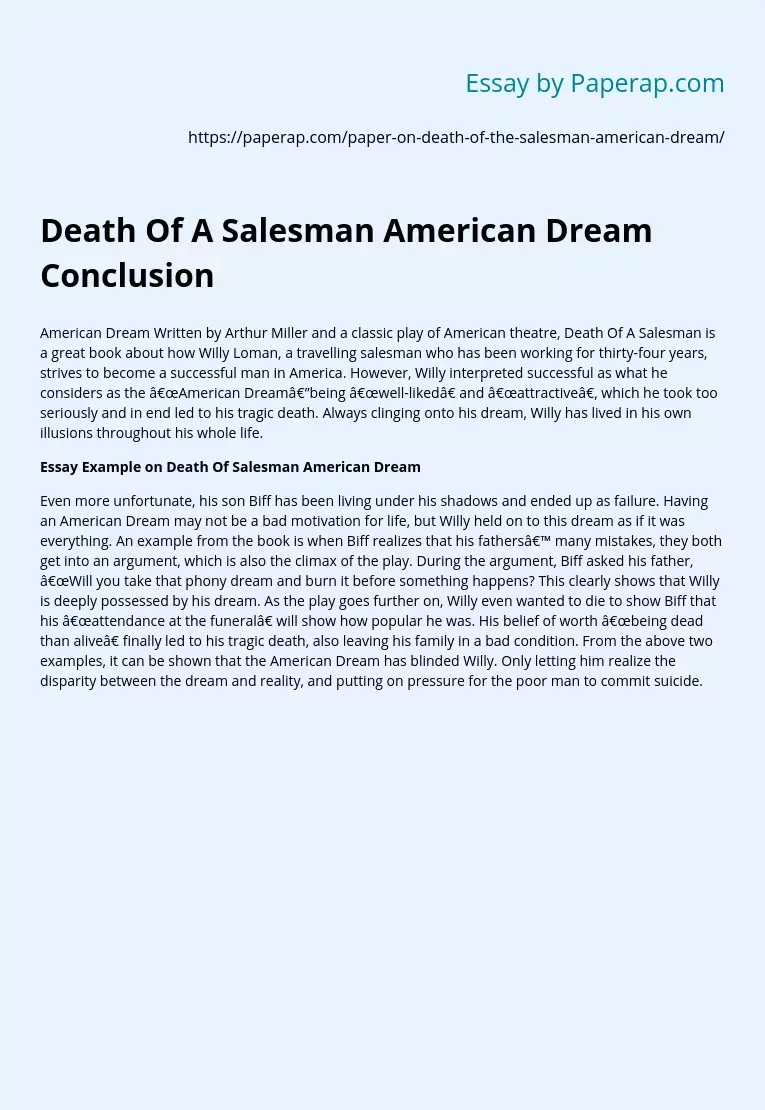Death Of A Salesman American Dream Conclusion
American Dream Written by Arthur Miller and a classic play of American theatre, Death Of A Salesman is a great book about how Willy Loman, a travelling salesman who has been working for thirty-four years, strives to become a successful man in America. However, Willy interpreted successful as what he considers as the “American Dream—being “well-liked” and “attractive”, which he took too seriously and in end led to his tragic death. Always clinging onto his dream, Willy has lived in his own illusions throughout his whole life.
Essay Example on Death Of Salesman American Dream
Even more unfortunate, his son Biff has been living under his shadows and ended up as failure. Having an American Dream may not be a bad motivation for life, but Willy held on to this dream as if it was everything. An example from the book is when Biff realizes that his fathers’ many mistakes, they both get into an argument, which is also the climax of the play.
During the argument, Biff asked his father, “Will you take that phony dream and burn it before something happens? This clearly shows that Willy is deeply possessed by his dream. As the play goes further on, Willy even wanted to die to show Biff that his “attendance at the funeral” will show how popular he was. His belief of worth “being dead than alive” finally led to his tragic death, also leaving his family in a bad condition. From the above two examples, it can be shown that the American Dream has blinded Willy.
Only letting him realize the disparity between the dream and reality, and putting on pressure for the poor man to commit suicide.
Death Of A Salesman American Dream Conclusion. (2019, Nov 27). Retrieved from https://paperap.com/paper-on-death-of-the-salesman-american-dream/

